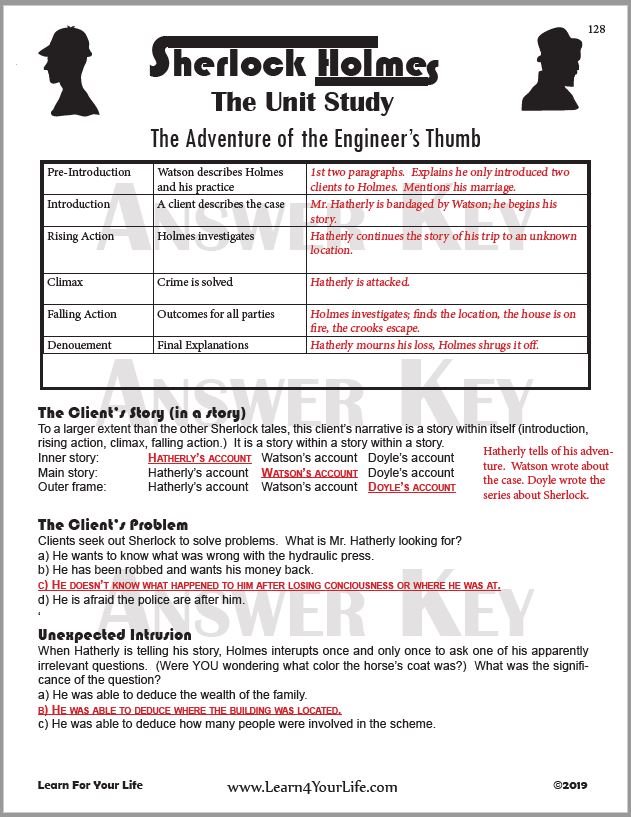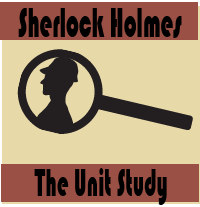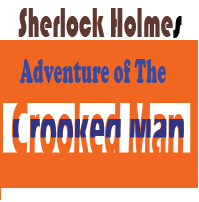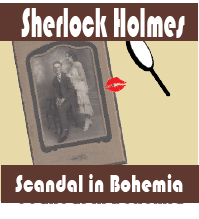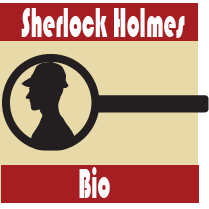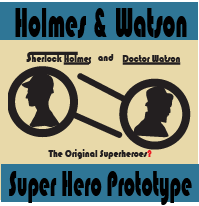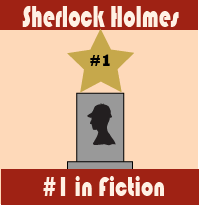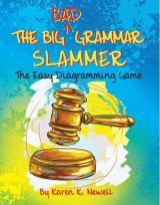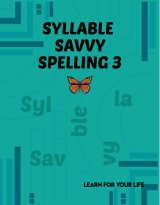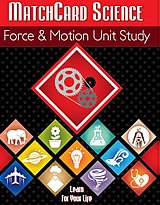Bruce Partington Plans Analysis
#H - 39 BRUC
The Adventure of Bruce Partington analysis compares Sherlock's view and Mycroft's view on this international case. One of the most dramatic stories in the Sherlock canon, this tale gives some unexpected glimpses into the detective.
This is the thirty-ninth Sherlock Holmes short story and the second of the stories published in His Last Bow.
This page presents an analysis of the story The Adventure of Bruce Partington Plans and does not reprint the text or describe the plot.
Dating of the Story
- Setting of the story: Monday Nov 18 to Friday Nov 22, 1895 (1st sentence + calendar of 1895)
- Date recorded by Watson: At least 1897 per the last paragraph.
- First published by Doyle in The Strand: Dec 1908
- Published in Book Form: 1917 His Last Bow - the fourth collection of short stories
Story Opening
Crafty old Doyle slyly planted a parallel literary technique right into the very first paragraph. It begins with a boring calendar of inaction for Sherlock during a week of thick London fog. The careful reader will note that those same boring days are the time frame in which the crime occurred.Calendar
- Monday: Holmes cross-indexed his "huge book of references." (The same day the plans disappear and Cardogan dies.)
- Tuesday: Holmes studied "the music of the Middle Ages". (That day the body of Cardogan is found and the case opens.)
- Wed: Holmes patiently continued his musical research. (Government agencies respond to the missing plans.)
- Thursday: Baker Street scene and Holmes begins the hunt.
Opening Type: Baker Street Scene
We have detailed the 3 main types of Sherlock Holmes openings. This is a classic Baker Street Action Scene with another feature: a little bit of comedy.Humorous Opening: Serious Story
In the third paragraph Watson delineates what Sherlock means by asking, "Is there anything in the paper?"It sounds like a basic enough question. But Watson realized Holmes couldn't care less about:
- a revolution
- possible war
- transformation of the British government
Civil War? Who cares?
Political vs Personal
While Sherlock's indifference to politcs and Watson's comment are a bit comical, it does introduce us to the case that soon will present itself to them: a case - it turns out - that is both political and personal.Unbeknown to them, a crime has occured. And it could influence wars, revolutions, and their own government.
Meanwhile, a British citizen is dead, his honor ruined, his mother and fiance devastated.
Pre-Introductory Pronouncement and FulFillment
Most of the Sherlock short stories have a pre-introductory pronoucement that furnishes readers with a clue. This particular story has a two part pronouncement in the third paragraph.Pronouncement
- "The London criminal is certainly a dull fellow" proclaims the very bored Sherlock.
- "Look out of this window, Watson. See how the figures loom up, are dimly seen, and then blend once more into the cloud-bank. The thief or murderer could roam London on such a day as the tiger does the jungle, unseen until he pounces, and then evident only to his victim."
Fulfillment
Usually the fulfillment appears at the end, but this time it is revealed in the rising action (see section on Action Plot below).- The criminal in this case is not dull, but gives rise to one of Holmes' most significant cases.
- The thick London fog follows the characters through the story and reflects the on-going mood of the characters (but not the author's tone.)
Features of the Action Plot
The Adventure of the Bruce Partington Plans largely follows Doyle's usual action plot.- Pre-Introduction - Baker Street Scene - boredom before the case begins, telegram from Mycroft
- Introduction (Client's explanation of the case) - The introduction begins as Watson starts reciting facts about Cardogan West and continues as Mycroft commissions Sherlock to take the case.
- Rising Action - (Holme's Investigation) - His investigation is largely a series of visits:
- Part I: With Watson
- Inspection of the railway (the points indicate the roof)
- Sir James Walter (unexpected death)
- West's mother and fiance (looking worse for Cardogan's honor)
- Clerk Sydney Johnson (the spy would need the drawing of the double valves)
- Woolwich Station (West had been nervous as he got on the 8:15 train)
- Part II: Without Watson (narrated by Holmes to Watson)
- Glouchester Road Station (line runs under windows of houses)
- Caulfield Gardens (house of Oberstein who had flown)
- Part III: Watson/Holmes Burglary (finds newspaper listings from Pierrot)
- Part IV: The whole team (Holmes/Watson/Lestrade/Mycroft) lay the trap at Oberstein's house
- Part I: With Watson
- Climax - (The surprise solution) - Colonel Valentine caught in their trap
- Falling Action - (Explanation and outcome) - Oberstein trapped and plans found
- Denouement - (Final explanations, and ending remark - prison terms for the two spies, Polyphonic Motets completed , emerald tie pin
Signficance of this Case
Per the quotes within, this was the most important case Sherlock undertook, surpassing even the Adventure of the Naval Treaty:- Mycroft: You must drop everything, Sherlock. Never mind your usual petty puzzles of the police-court. It's a vital international problem that you have to solve. Ha, after all the times Sherlock insulted Watson, its maybe just a little satisfying that Big Brother insults the work of the master.
- Mycroft Again: Its importance can hardly be exaggerated. It has been the most jealously guarded of all government secrets.
- More Mycroft: In all your career you have never had so great a chance of serving your country.
- Holmes: I am not aware that in all our joint researches we have ever had a case which was more difficult to get at. Then later: Why, Watson, I do honestly believe that we are going to pull it off, after all.
- Mycroft again (in a letter): The whole force of the State is at your back if you should need it.
Symbolism
The fog is a symbol of the mystery and danger that enshrouds this important government case.Theme
The theme is (loosely) patriotism. It brings together the opening dialogue of a case that is international (of no concern to Sherlock but much to Mycroft) and personal (to the fiance of West.)Tone vs Mood
Here is a story where the tone and mood are not the same.Mood: the mood of the characters - serious and somber
Tone: the voice of the author - cheeky and glib
Inspite of this being one of Sherlock's most important national cases, Doyle wrote it with many glib comments and a sarcastic undertone. Holmes may not be flippant, but his creator is. There are multiple instances of dry humour throughout.
For instance The Polyphonic Motets of Lassus from the Middle Ages that begin and end the story are characteristic of its humor:
"As to Holmes he returned refreshed to his monograph upon the Polyphonic Motets of Lassus which have since been printed for private circulation, and it is said by experts to be the last word upon the subject.Sherlock also adds to the dry humor: Your arrest as a suspicious character would be a most unfortunate complication.Good luck finding a copy in private circulation.
Ending of the Tale
The last paragraph is an epilogue written a few years out with no indication of Holmes' mood or characteristic flippancy of a final statement. The ending does reflects the comic tone adopted by Doyle at the beginning and end of the story.
Holmes received an emerald tie-pin, apparently from the murdered man's fiance for clearing his honor. West was not the dull criminal believed at the outset. We do learn that, thankfully, Holmes did finish the Polyphonic Motets of Lassus.
Literary Genre
This story is almost as much of a spy story as a detective story. There are two in the canon, with His Last Bow being the primary spy tale.
Glimpses into Sherlock's World
This tale, like all of the S.H. short stories, provides scattered details that contribute to the full-picture of Holmes, his associates, and practice.
Mycroft Holmes
This is one of only two stories in which we get to meet Sherlock's older brother. (The Greek Interpreter was the first.)
Here are some quotes from within this story about the brother:
- It as if you met a tram-car coming down a country lane. Mycroft has his rails and he runs on them. His Pall Mall lodgings, the Diogenes Club, Whitehall - that is his cycle. Once, and only once, he has been here. What upheaval can possibly have derailed him?"
- Well, his position is unique. He has made it for himself. There has never been anything like it before, not will it be again. He has the tidiest and most orderly brain with the greatest capacity for storing facts, of any man living. The same great powers which I have turned to the detection of crime he has used for this particular business. The conclusions of every department are passed to him, and he is the central exchange, the clearinghouse, which makes out the balance.
- You would also be right in a sense if you said that occasionally he IS the British government.
- All other men are specialists, but his specialism is omniscience.
- Again and agains his word has decided the national policy. He lives in it. He thinks of nothing else save when, as an intellectual exercise, he unbends if I call upon him and ask him to advise me on one of my little problems.
- A moment later the tall and portly form of Mycroft Holmes was ushered into the room. Heavily built and massive, there was a suggestion of uncouth physical inertia in the figure, but above this unwieldy frame there was perched a head so masterful in its brow, so alert in its steel-gray, deep-set eyes, so firm in its lips, and so subtle in its play of expression, that after the first glance one forgot the gross body and remembered only the dominant mind.
- Mycroft's explanation for assigning the case to Sherlock instead of solving it himself: But it is a question of getting details. Give me your details, and from an armchair I will return you an excellent expert opinion. But to run here and run there, to cross-question railway guards, and lie on my face with a lens to my eye - it is not my metier. No you are the man who can clear the matter up.
Significance of Mycroft
In this story, Doyle develops the personhood of Mycroft more than he did in the other reference to him in The Greek Interpreter.
Both Mycroft and Sherlock seem to accept that Mycroft is the more significant of the two, as Sherlock concerns himself with "little problems" and Mycroft with the affairs of state.
His description of Mycroft rises to the level of hyperbole: "his specialty is omniscience."
In short, Doyle inserted Mycroft into the canon as a super-human. It is no wonder movie producers always include him. But his actual role in the Sherlock Holme's stories, and in the Sherlock Holme's Detective Agency, is minor.
Watson's Role
Watson has a number of different roles as Holmes' assistant. Three are apparent in this story.Newspaper Reader
Holmes hunted the papers daily, but he couldn't read them all. He asked Watson about the papers in the first paragraphs. It was also Watson, not Holmes, who first recognized the name Cardogan West from news accounts.Biographer
As Holmes left the apartment he remarked,"I am going out now. It is only a reconnaissance. I will do nothing serious without my trusted comrade and biographer at my elbow...If time hangs heavy get foolscap (ie paper) and a pen, and begin your narrative of how we saved the State."Watchman and Burglar
Watson received this telegram from Holmes: "Please come at once...Bring with you a jemmy, a dark lantern, a chisel, and a revolver." Watson remarks, "It was a nice equipment for a respectable citizen to carry through the dim, fog-draped streets."
Sometimes Watson was game to act as co-burglar, sometimes more reticient as in this case. So Holmes demotes him to watchman:"My dear fellow, you shall keep watch in the street. I'll do the criminal part. It's not a time to stick at trifles."Closer Look at Holmes
This story is a particularyly great resource for those who like to study the inner-sleuth.
- Holmes has a new hobby: music of the Middle Ages
- He is a nail-biter (last sentence, first paragraph) which goes along with his bored and nervous personality.
- He has some big enemies: "Suppose that I were Brooks or Woodhouse, or any of the fifty men who have good reason for taking my life, how long could I survive against my own pursuit?"
- Too intelligent for his own good: It was one of my friend's most obvious weaknesses that he was impatient with less alert intelligences than his own.
- Holmes compared to a foxhound: See the foxhound with hanging ears and drooping tail as it lolls about the kennels and compare it with the same hound as, with gleaming eyes and straining muscles, it runs upon a breast-high scent - such was the change in Holmes since the morning. He was a different man from the limp and lounging figure in the mouse-coloured dressing gown who had prowled so restlessly only a few hours before round the fog-girt room.
- A crack in the marble: "I knew you would not shrink at the last," said he, and for a moment I saw something in his eyes which was nearest to tenderness than I had ever seen. The next instant he was his masterful, practical self once more."
- Ability to detach himself: One of the most remarkable characteristics of Sherlock Holmes was his power of throwing his brain out of action and switching all his thoughts on to lighter things whenever he had convinced himself that he could no longer work to his advantage. I remember that during the whole of that memorable day he lost himself in a monograph which he had undertaken upon the Polyphonic Motets of Lassus. For my own part I had none of this power of detachment.
Finally, as noted above, Sherlock is more concerned with the effect on human lives, not on nations. It is a bit of a joke at the opening (who cares about revolutions?) and a little jab by his older brother (forget your petty police cases.) Nonetheless, the story ends on a personal note: he went again to see the fiance and bears the emerald tie pin for his service to a hurting person.
See more about Sherlock's personality
Holmes' Methods A few tidbits for the students of Sherlockian methodology:
- "We must fall back upon the old axiom that when all other contingencies fail, whatever remains, however improbable, must be the truth."
- Burglary is added to his method, which he calls an "amateur domicillary visit". This is the third time in the canon he has descended to breaking and entering (Charles Augustus Malverton and Wisteria Lodge hosted the prior burglaries ala Holmes.)
Singular Use of the Word Singular
In this series we have noted how the word "singular" is usually used one single time in most stories. It is used four times in this, possibly corresponding to the number of days of the drama. Intentional or not?
Baker Street Treasure Hunt
If you are joining us in our Baker Street Treasure Hunt we actually have three items of interest in this story:
- Brandy and soda (my but those two did drink)
- mouse-coloured dressing gown
- emerald pin
Sherlock the Writer
Holmes can add The Polyphonic Motets of Lassus to his authorship page on works by Sherlock.Literary Allusions
The royal nursery rhyme was altered in honor of the then-reigning-monarch Queen Victoria. "I'm afraid," said Holmes smiling, "that all the queen's horses and all the queen's men cannot avail in this matter."
Background Information
Here is some good-to-know info for the 21st century reader who may be confused upon a few points
- Bimetallic question is the comparison of the costs of two precious metals, such as the gold to silver ratio.
- Polyphonic Motet was a sacred choral that had multiple notes sung at once (compared to the Gregorian chant that had only one note at a time.) Lassus was a 16th century composer.
The unit study below analyzes eight of the most popular Sherlock Holmes stories. The Adventure of the Bruce Partington Plans is not one of the eight in this unit study.Buy Sherlock Holmes: The Unit Study
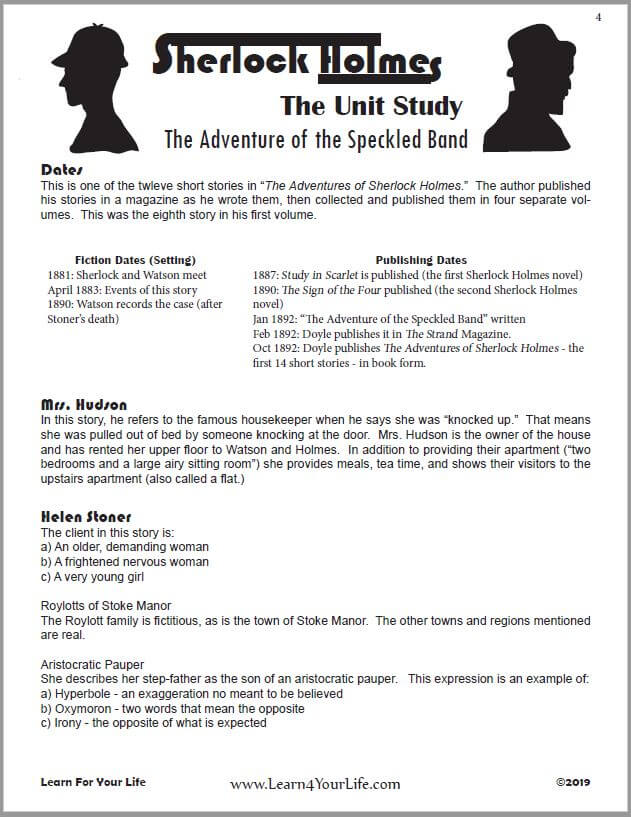
Student Guide AND Teacher's Answer Key Included
$2.99 Download - 183 pages
Eight of the most popular tales demonstrate how to investigate a detective story.

Sherlock Holmes Pages
A catalog of our pages on Sherlock Holmes.
About Our Site
Hands-On Learning


